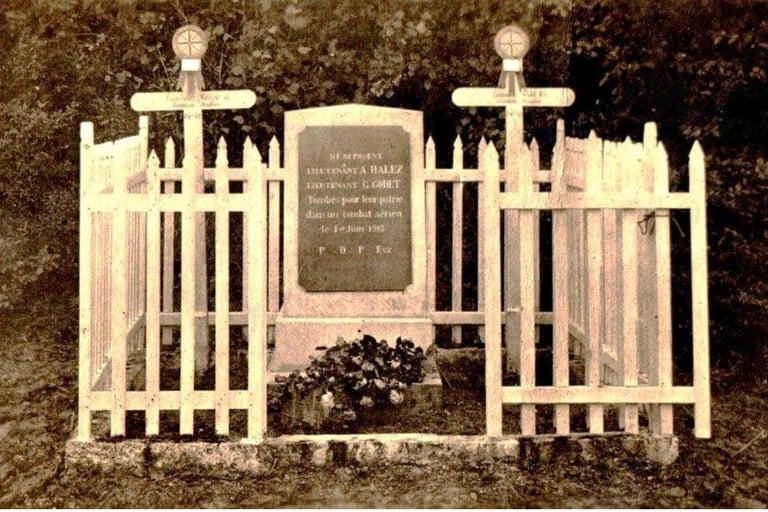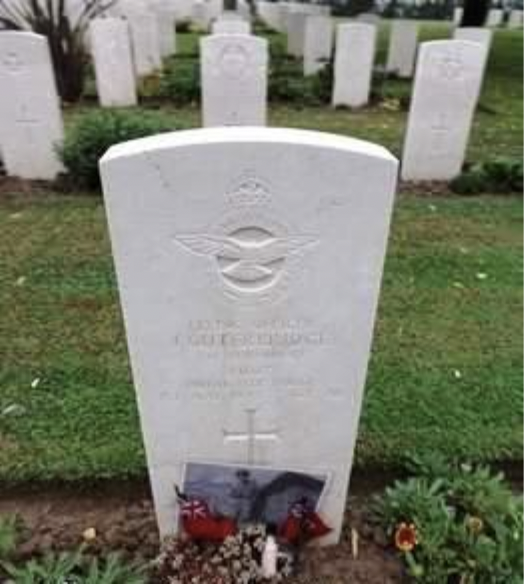War Heroes of the Overseas Territories
The 11th November marks the anniversary of the armistice that brought the First World War to an end, over 100 years ago. Since 1919 the 11th November has been known as Remembrance Day and marks an occasion for reflection and remembrance of all the Commonwealth fallen throughout history.
NEWS FROM THE OVERSEAS TERRITORIESRESEARCH
The 11th November marks the anniversary of the armistice that brought the First World War to an end, over 100 years ago. Since 1919 the 11th November has been known as Remembrance Day and marks an occasion for reflection and remembrance of all the Commonwealth fallen throughout history.
The British Overseas Territories are no exception and many brave individuals made the ultimate sacrifice fighting alongside the Allies. This year we will be honouring two servicemen from Bermuda, a territory that provided swift and disproportionate support to Britain during both world wars.
Leonard DeGraff Godet, died in the First World War on June 1, 1918 mere months before the war ended, at the age of 21. He was a brilliant student who gave his life while serving with the newly created Royal Air Force. Mr. Godet was born in Paget in 1896. He was a Rhodes Scholar at Oxford University until he answered the call of duty. He received his pilot wings on August 14, 1917 and went to France on active service four days later. He died when his plane was brought down in flames across German lines in France, after completing 16 long-distance raids. 2nd Lieutenant Godet was flying with 2nd Lieutenant Arthur Haley, born 1895, in a DH4 that was shot down by German anti-aircraft fire while over Antilly, near Metz. Godet was the pilot and Haley the observer. The two were initially buried together with great honour by French villagers in a grave especially created for them in Antilly, but it is believed they were later moved by the Commonwealth War Graves Commission as they are now reburied in adjacent graves numbered 374 and 375 in the French National Cemetery at Chambieres, Metz. The grave built by French locals is pictured below.


Mrs Janet Bowen (nee Haley), discovered a poem titled “In Fair Lorraine” written by grieving mother Maud Godet of Bermuda about the resting place in Lorraine, France, of her beloved dead son Leonard. Written in October 1918, it is an extremely moving example of a mother’s deep sense of loss.
Outerbridge, James. Born 5 September 1922. His family lived in Flatts, Bermuda. Educated at Whitney Institute, Bermuda and Rossall School, England, James was also accepted for a Rhodes Scholarship but was interrupted by war. A flying Officer in the Royal Air Force he was assigned to 458 Squadron, Royal Australian Air Force (RAAF), then based at Luqa, Malta. He piloted a Vickers Wellington Mark 8 bomber HX 522. It took off from Luqa at about 2020 hours on March 24, 1943 but either had an engine failure or was struck by enemy fire. It ditched off the coast of Sicily, with James being captured. On 1 May 1943 he was shot while attempting to escape from Allied P.O.W. Camp 21 in Chieti, Italy, while being transported by train by the Germans and Italians to POW prisoner-of-war camp 39 in Palma, Italy. He may have been trying to get to San Marino, then a neutral state only 20 kilometres away. During his attempt to escape he was seen and intercepted by a guard who shot and killed him. His body was later identified formally in the mortuary chamber of the Axis military hospital of Rimini. His name is engraved on a tombstone in the military cemetery of Ravenna, Italy, see photo below.


I would like to thank the Bermuda Online, who’s “Bermuda’s War Veterans” webpage has provided the information used in this article. There are so many who gave their lives not just from Bermuda but across the British Overseas Territories and their sacrifice must never be forgotten.
